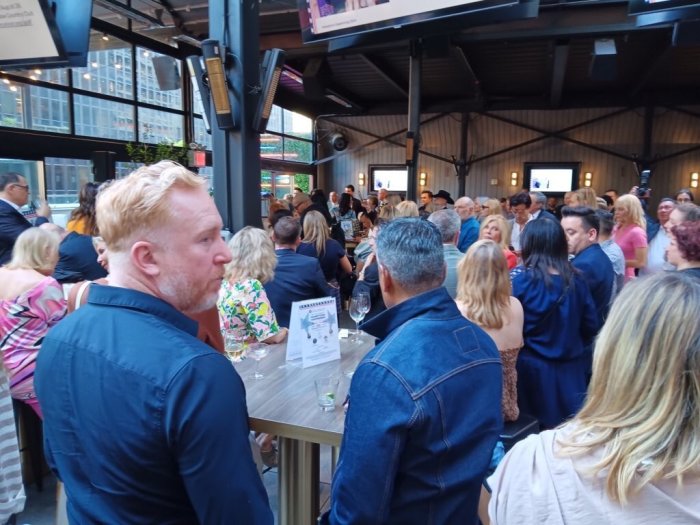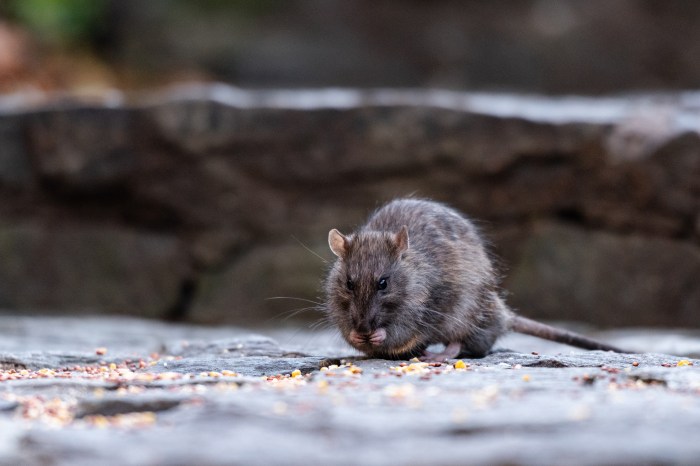
Reading, writing, arithmetic — and cooking.
This month, the International Culinary Center is teaming up with former White House executive pastry chef Bill Yosses for “Kids Can Cook!” Over the course of five classes, the series will teach students ages 8-11 their way around a kitchen, from safety skills to food science to hands-on demonstrations.
The class is the latest initiative from Yosses, who since leaving the White House last year has worked to teach children healthy cooking and eating through partnerships with the NYC Board of Education, Edible Schoolyard, Harvard Medical School and ChopChop, a kids’ cooking magazine.
amNewYork chatted with Yosses about his class.
What modifications are made when working with kids?
Any time you’re interacting with kids, you have the attention span factor. We’re kind of meeting children on that level. Every lesson we start out with a conversation about what we’re doing — we call it a mindfulness conversation. We’re not even cooking at this point. We will maybe take an ingredient and taste it — it could be a lemon segment or an endive, something with a unique, strong flavor. We have the kids taste it and concentrate on the texture and juiciness and flavor. Then during the class, when things get exciting, we can refer back to that mindfulness moment and the commitment they made to really focus on the activity at hand. It prepares the ground so they know that this is fun, but it’s serious fun. If they’re handling a knife, they have to be totally focused on that space in front of them.
What culinary science experiments are planned?
We do that as a way to bring a real understanding about food into the class. One of the things that we do is take two water bottles — in one we put water and yeast, in the other we put water, yeast and sugar. We put a balloon tightly affixed to the top of both bottles. After a few minutes, on the one with the sugar, the balloon inflates. We ask them, Why does the balloon inflate? Most of them come pretty close to understanding that the yeast is a growing microorganism and that it’s breathing, just like you and I. It’s fun and visual. We want them to look at food, something that’s in their everyday lives, as a prism to look at science.
What kinds of dishes will they make?
They’re foods that grownups will enjoy too. Just that our approach is to work carefully with them step by step. For example, we make what we call salad on a stick — this comes later on in the course when they’ve had a little bit of experience with knives — they cut their vegetables into cubes and put them on a stick, and we have them do a vinaigrette, which is an example of multiplication. We make an omelet. They get the experience of being there at the flame, seeing this liquid egg come together into a solid omelet. The science there is what we call a phase change — going from a liquid to a solid.
What is your approach?
My ultimate goal is health and wellness — it’s the reduction of obesity and diabetes. But that’s boring to a 9-year-old. We have more like the magic show approach — we want to show foods and how exciting they are. And you do it yourself, that’s the key part. In school, food is usually served to kids, at home it’s served to them. Here, they’ve done it themselves, they have agency. They are much more likely to see how it relates to their overall health.
What will kids ultimately take away?
Some of the basic skills. We start out with what we call the “bear claw” — it’s a way to hold your hand so your thumb doesn’t get chopped off. It’s a very basic technique that is part of every cooking school; what it means to heat up the pan and cook something on it; what it means to develop rules of hygiene, which is one of the most important parts of being a professional cook. They’ll have a real sturdy understanding of food that comes into the kitchen — how it’s cleaned, how it’s stored, how it’s processed and how it’s stored again. We’re not preparing them to go work at Daniel — our aim is just so that they see that there is fun and learning to be had in the kitchen.
“Kids Can Cook!” at the International Culinary Center (462 Broadway, 888-324-2433) runs Saturdays from Sept. 26-Oct. 24, 9:30 a.m.-noon, tuition $995.

















